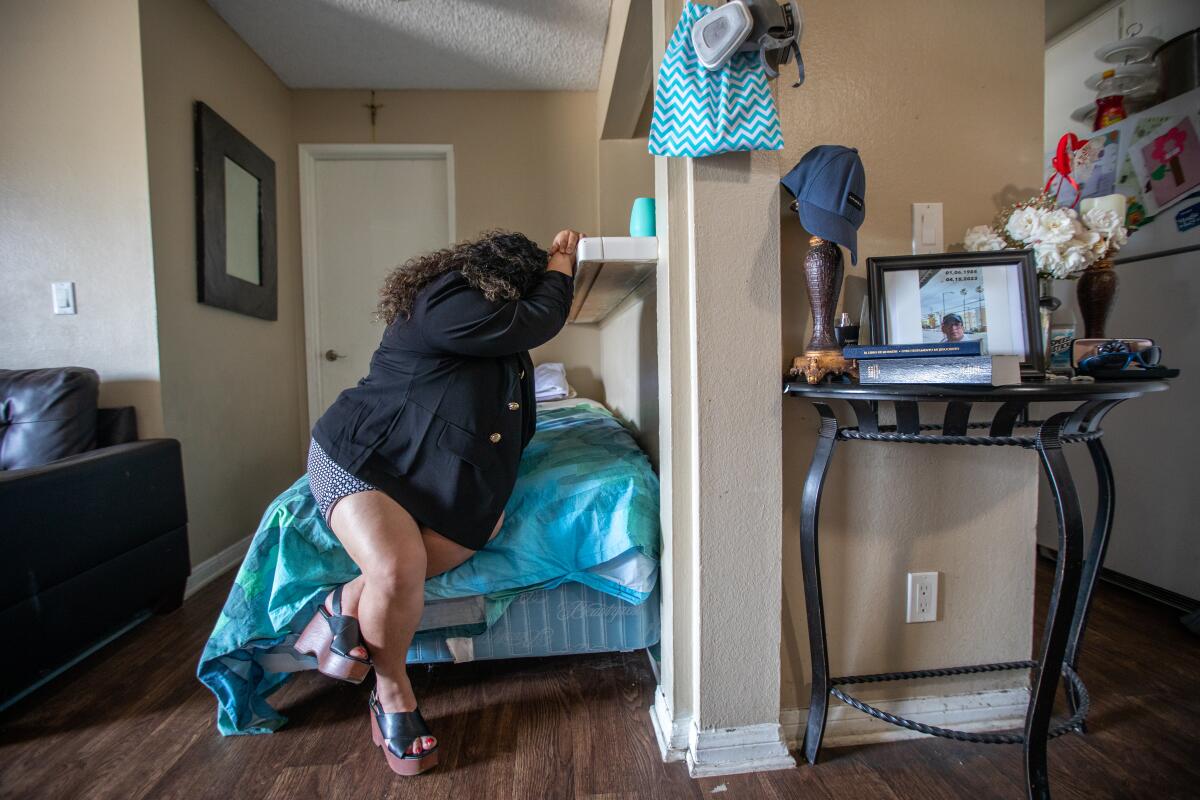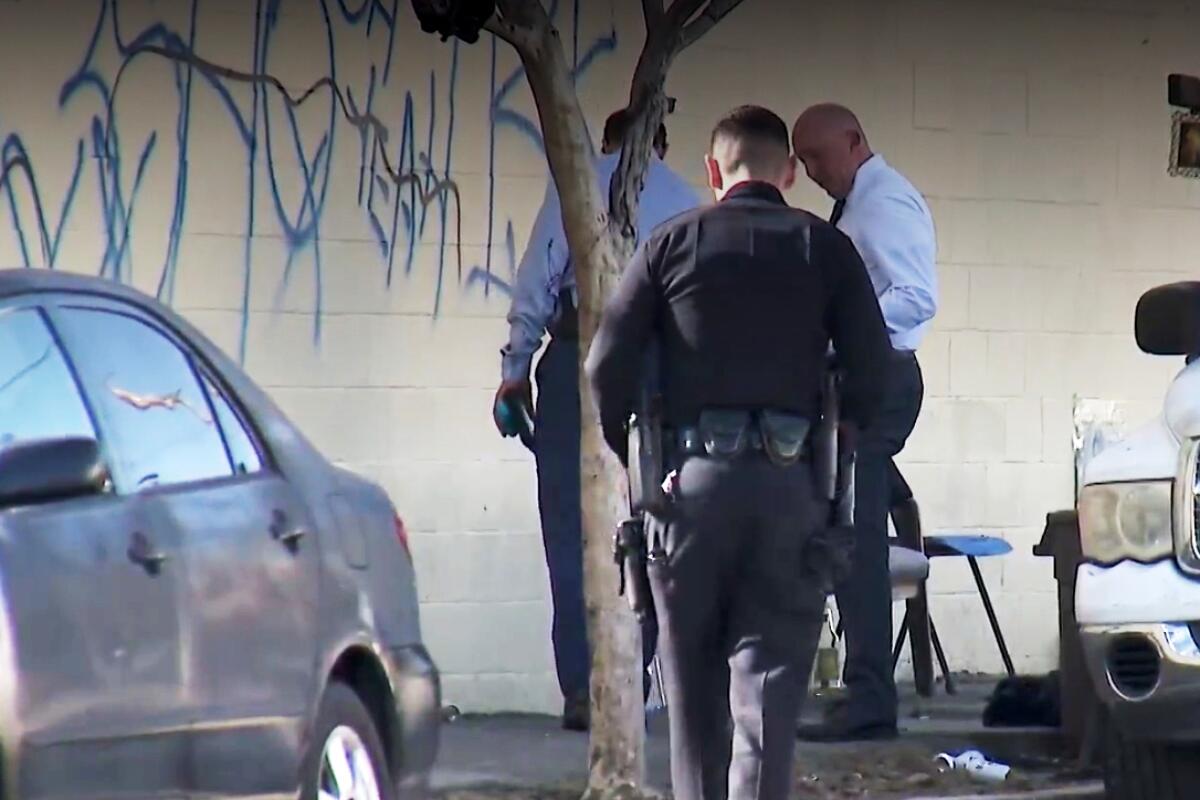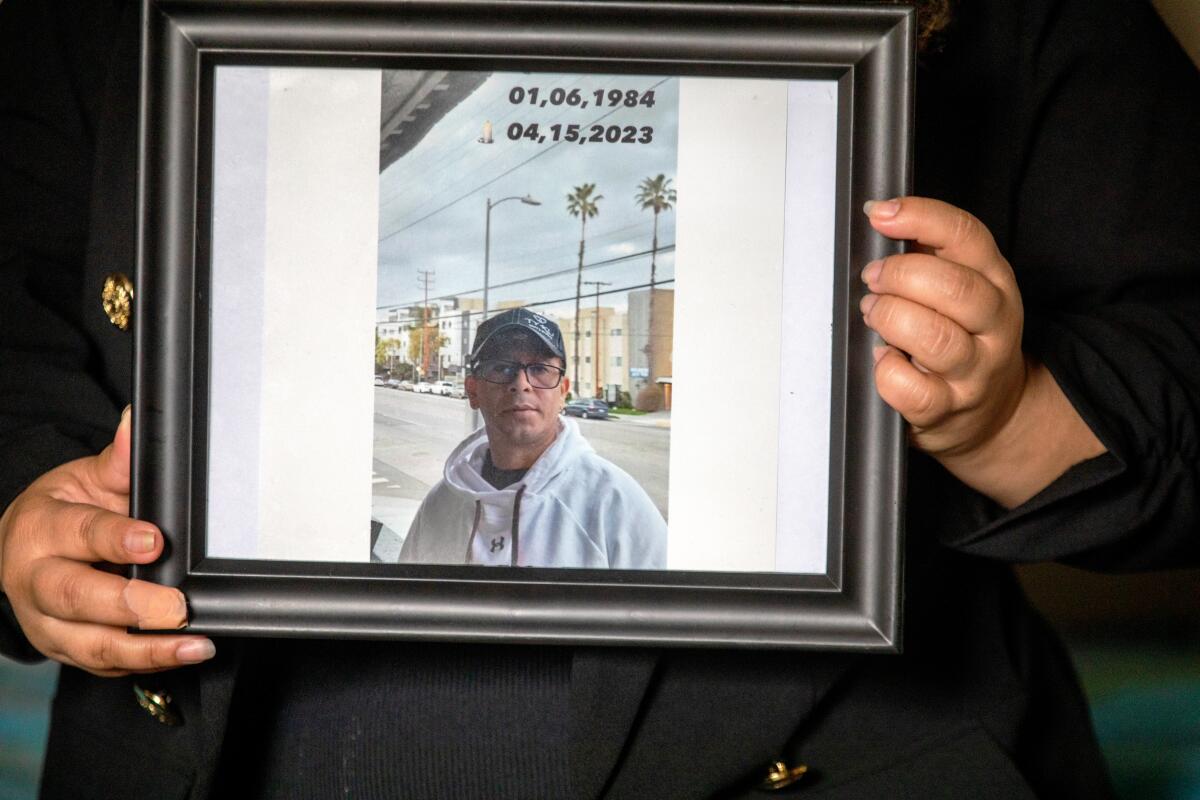He painted over graffiti to pay for his daughter’s birthday cake. It cost him his life

- Share via
Juan López left Nicaragua for the U.S. last year in hopes of escaping the violence plaguing that Central American nation.
But his life ended tragically on the streets of Los Angeles, felled by a bullet while working to earn money so his daughter back in his home country could celebrate her ninth birthday.
On the day he died, López, 39, was in a good mood because he had been offered a “trabajito,” a small job painting an ice cream shop with some other men.
Life had not been easy in Los Angeles. He had struggled to find work as a painter, and was living with his sister in a small apartment in Northridge, sleeping on a cot in her living room. He missed his three children — Brittany, 9; Johan, 12; and Edward, 13 — whom he’d left in Matagalpa, Nicaragua.
His daughter Brittany’s ninth birthday was April 15 — the day of the painting job — and he could not wait to send money back to Nicaragua.
“He was so happy because he was going to earn that money to send his girl to buy the cake,” said Ruth López Suarez, Juan López’s sister.
He woke up at 7 a.m., shaved, showered, made his bed, left and she never saw him again.
Around noon, López was shot to death outside the ice cream shop on Parthenia Street in Northridge as he painted over gang graffiti, police said. The alleged shooter had seen López and other workers covering up graffiti that he and his crew had tagged on the wall earlier that day and was so offended that he shot at the men, killing López, he confessed to police.

López — who had been in the United States for six months, and Los Angeles for just three — had gotten caught in disputed gang territory, unwittingly risking his life for a meager wage and a day’s work, according to police and his sister.
Between Jan. 1 and May 13, 98 people have been slain in Los Angeles, a steep drop from last year’s rates, according to Los Angeles Police Department statistics. In the same period last year, 135 people were killed, the statistics show.
It was not López’s first run-in with violence. He was kidnapped and held for ransom in Mexico by a smuggler, though he eventually escaped.
He had come to America, looking for safety, his sister said.
The family was involved in local politics in Nicaragua. They worked on elections and participated in marches and protests against President Daniel Ortega’s iron rule.
“When one opposes the government in Nicaragua, they are at danger of getting arrested or disappeared. He wanted to avoid that. That’s why he left,” his sister said. “Now that we lost my brother, we see the truth that we didn’t realize before. In my home country, you don’t see those things where someone comes randomly and kills you. ... You have to have a problem with someone for that to happen. ... Here, they kill you because they want to, or because they confuse you with someone, or simply because you’re working, and they kill you.”
After the shooting, it took Ruth López days to figure out what happened to him.

López did not return home on the morning after he left to paint the ice cream shop, so his sister went looking for him. She went to the places he usually looked for work — like the Mormon church down the street.
Eventually, she found a man who had worked with her brother in the past.
“I showed him a picture of my brother and he said, ‘Your brother is dead. ... They killed him yesterday.’”
But police mistakenly reported that it was a 60-year-old killed, giving her false hope that her brother might still be alive.
Even after the man told López that her brother was dead, she still could not find his body. He was not at the hospital and police had no information for her. It wasn’t until the dead man’s fingerprints were matched with López in the Immigration and Customs Enforcement database that she knew for certain he was gone. Her brother had filed for political asylum and was awaiting his first formal court hearing.
Now, López hopes to send her brother’s body back to Nicaragua to be buried, which she cannot afford to do. It costs $12,800, she said, and she is raising money on GoFundMe to cover the expenses. She had raised more than $32,000 as of Tuesday night.
“My family wants to see him, his kids want to see him. It’s the least I can do for him now,” she said.
For Ruth López, it’s still hard to believe that she will never see her brother again. She left his cot out in the living room of her apartment, his bed made — he made it every morning. It’s ready for him if he does come back.
“I think that I’ll see him again. I feel like it’s a lie. I’ll see him again,” she said.
More to Read
Sign up for Essential California
The most important California stories and recommendations in your inbox every morning.
You may occasionally receive promotional content from the Los Angeles Times.












